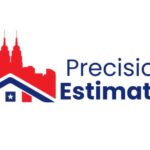In the competitive world of online marketing, standing out in local search results is critical for businesses. Local SEO packages are designed to enhance visibility, but one often-overlooked powerhouse in these packages is schema markup. When used strategically, schema markup transforms how search engines understand your website, improving your rankings and visibility for local searches. In this guide, we’ll dive deep into schema markup, explore its synergy with local SEO packages, and offer actionable steps to maximize its potential for your business.
What Is Schema Markup?
Schema markup is a type of structured data added to a website’s HTML to provide search engines with additional information about the content. Created by Schema.org, this universal vocabulary helps search engines understand a page’s context, such as business locations, reviews, events, and more. For local businesses, schema markup serves as a digital GPS, guiding search engines directly to relevant local data.
Why Schema Markup Matters for Local SEO
Enhanced Search Engine Understanding
Schema markup allows search engines like Google to interpret the content on your website more accurately. This ensures your business appears in the right local search results.
Rich Snippets in Search Results
Implementing schema markup can lead to rich snippets—enhanced search results featuring ratings, contact details, hours, and more. These details draw user attention and improve click-through rates (CTR).
Improved Local Search Rankings
Search engines reward websites with precise information, boosting rankings in local search results. Schema markup plays a pivotal role in providing this precision.
Better Voice Search Compatibility
With the rise of voice search, schema markup ensures that search engines deliver relevant, structured answers from your website to voice queries.
Key Types of Schema Markup for Local SEO
When combined with local SEO, the following types of schema markup prove invaluable for businesses targeting local customers:
Local Business Schema
Provides essential information like your business name, address, phone number (NAP), and operating hours.
Ensures this information is displayed in search results and on Google Maps.
Product and Service Schema
Highlights specific products or services, complete with descriptions, prices, and availability.
Increases visibility for relevant local searches.
Review Schema
Displays customer ratings and reviews in search results.
Builds trust and improves CTR.
Event Schema
Promotes local events hosted by your business, such as workshops, sales, or community gatherings.
Increases visibility for event-related queries.
FAQ Schema
Lists frequently asked questions and their answers directly in search results.
Reduces bounce rates by providing instant answers.
The Synergy Between Schema Markup and Local SEO Packages
Local SEO packages typically include strategies like Google My Business (GMB) optimization, citation building, and localized content creation. Schema markup amplifies the effectiveness of these tactics in several ways:
Boosting GMB Optimization
GMB optimization ensures accurate NAP information, but schema markup reinforces this accuracy for search engines.
Together, they improve the likelihood of appearing in the coveted Local Pack.
Enhancing Citation Consistency
Local SEO packages emphasize consistent citations across directories. Schema markup ensures this consistency is mirrored in your website’s code.
Elevating Local Content
Schema markup highlights key content details like location-specific services, making localized content more effective in search rankings.
Implementing Schema Markup: A Step-by-Step Guide
To maximize the benefits of schema markup in your local SEO package, follow these steps:
Audit Your Website
- Identify pages that would benefit most from schema markup, such as service pages, product pages, or contact pages.
Choose the Right Schema Types
Use the types listed above based on your business needs. For example, a restaurant may prioritize menu and review schema, while a retail store may focus on product schema.
Use Google’s Structured Data Markup Helper
This free tool helps generate schema code easily by tagging elements on your website.
Embed the Schema Markup
- Add the schema code to your website’s HTML or CMS (e.g., WordPress).
Test the Markup
- Use Google’s Rich Results Test or Schema Markup Validator to check for errors and ensure correct implementation.
Monitor Performance
- Track your search rankings, CTR, and local visibility using tools like Google Analytics or Google Search Console.
Common Mistakes to Avoid
Even the best intentions can lead to errors. Watch out for these pitfalls when using schema markup:
Inconsistent NAP Details
Ensure your schema markup matches the information on your GMB listing and other citations.
Overloading Schema Types
Avoid stuffing too many schema types into a single page. Prioritize relevance and clarity.
Ignoring Updates
Regularly review and update schema markup to reflect changes in business details or new SEO best practices.
Skipping Testing
Always test your schema markup to catch errors before they impact your rankings.
Real-World Examples of Schema Markup Success
Local Bakery’s Visibility Boost
A small bakery used local business schema to enhance their GMB listing. Within three months, they saw a 40% increase in local search visibility and a 25% uptick in store visits.
Home Repair Service Gaining Reviews
A home repair service implemented review schema, showcasing their 5-star ratings in search results. This increased their CTR by 30% in six weeks.
The Future of Schema Markup in Local SEO
As search engines continue to prioritize structured data, the importance of schema markup will only grow. Innovations like AI-powered search algorithms and enhanced voice search capabilities will rely even more on structured data to deliver accurate, relevant results. Businesses leveraging schema markup within their local SEO packages will stay ahead of competitors and continue to thrive in local markets.
Final Thoughts
Schema markup and local SEO packages are indeed a winning duo. By enhancing search engine understanding, improving rankings, and increasing CTRs, schema markup solidifies your local SEO strategy. Businesses that invest in both can expect not only greater visibility but also higher customer engagement and revenue growth.
Implementing schema markup might seem technical, but the results are worth the effort. Pair it with a well-structured local SEO package, and your business will be well on its way to dominating local search results.


